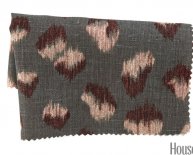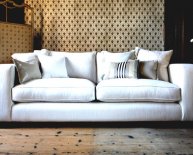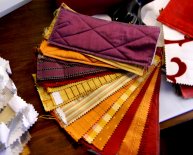
Softest cotton
Trying to settle on a set of sheets? Understanding some basics about the fabrics they're made of will help you compare labels wisely and make a smart choice.
"Cotton is by far the most-loved fabric for sheets, " says Jim Symmes, vice president at Revman International, which manufactures sheets for prominent brands such as Tommy Bahama and Laura Ashley. "It's soft, durable, and breathes well. But improvements in the manufacturing process and finishing techniques mean that other fabrics like polyester can be a viable alternative to cotton." What you're looking for is what the industry dubs a nice "hand"-soft and luxe to the touch.
Some fabrics may fit your needs better than others. Here's a guide to choosing the sheet that's right for you:
Sheets made of microfiber-fabric composed of extremely fine fibers of polyester-are affordable and soft, and they resist pilling more than traditional polyester fabric does. However, polyester is less breathable than cotton and is probably not the best choice for those with sensitive skin.
Cotton jersey sheets are also reasonably priced and very breathable because they're knit rather than woven. Jersey is basically T-shirt fabric, so jersey sheets may appeal to you if you like sleeping in a soft old shirt.
Microfiber and jersey don't have the cool crispness of woven cotton, so if you like to flip your pillows to the cool side all night long, you're better off looking at an inexpensive cotton percale instead.
The highest-quality, softest sheets use cotton with extra-long fibers (called long-staple fibers) that can be spun into fine, strong yarns. Certified long-staple cottons include Egyptian, pima, and Supima®. That doesn't mean that other types of cotton don't make nice sheets, Symmes says. A fabric that is finished nicely with a high thread count can be made of a non-certified cotton and still be very comfortable.
Thread count refers to the number of horizontal and vertical threads per square inch. Generally, the higher the thread count, the softer the sheet, and the more likely it will wear well-or even soften-over time. Good sheets range anywhere from 200 to 800, although you'll occasionally see numbers over 1, 000. Astronomical thread counts don't necessarily mean the sheet is better-there are even tricks to inflating the thread count (such as using multiple yarns twisted together) that don't actually improve the hand of the fabric and may even detract from its quality.
Don't assume a low thread count means low-quality sheets. "There are 200-count cotton sheets out there that are finished very nicely and actually feel like they have a higher thread count, " Symmes says. "Fewer chemicals and more mechanical finishings are used these days, giving a nice hand and performance." If you're watching pennies, try a 200-count combed cotton set from a well-known brand; name brands are likely to have high certification standards for their finishing processes.

















